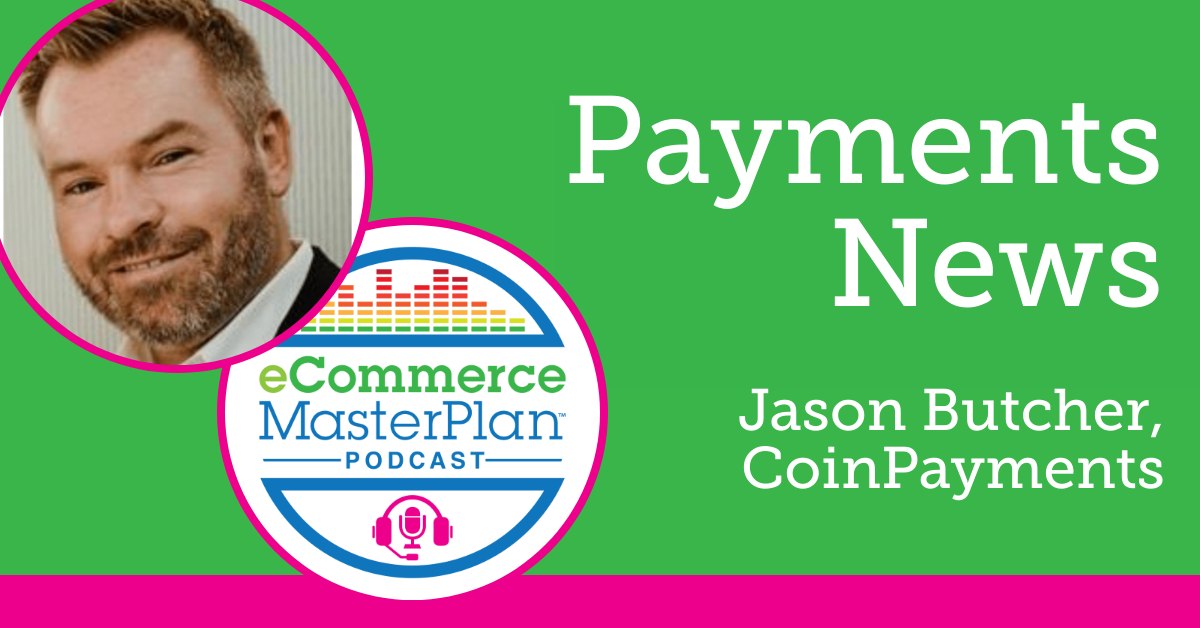
CoinPayments CEO Jason Butcher recently joined Norbert Strappler on The eCom Ops podcast to discuss the evolution of cryptocurrencies and how they’re reimagining the future of commerce, easing operations, and streamlining transaction fees for merchants and users alike. Today, we’re breaking down some of the key takeaways from the discussion.
Cryptocurrency adoption is at all-time highs
According to recent data, cryptocurrency adoption has settled into its fourth stage — acceptance. Today, there is a larger amount of cryptocurrency users than ever before.
The rise of cryptocurrency adoption comes as no surprise in an online environment where #Bitcoin trends almost daily and “crypto” is among the top searched terms globally, according to Google Trends. With more notable figures acknowledging cryptocurrencies and traditional artists capitalizing on the world of blockchain with NFTs, the increasing rate of adoption doesn’t appear to be slowing down any time soon.
“Last month, we processed over $650 million in crypto transactions, whereas a year before that number was probably half of the volume,” said Butcher.
As a form of payment, Bitcoin remains the top transacted cryptocurrency for CoinPayments this year, accounting for 81% of all transactions, he noted. Whereas in the past, Bitcoin users typically held onto their assets, there has been a shift in the collective mentality and a rise in spending in recent years.
Variety for consumers: the ability to choose
The global adoption of cryptocurrency payment represents the newest form of payments innovation, noted Butcher.
“The usage of credit cards took about 50 years for adoption,” he said. In their early days, speculators may have questioned why anybody would pick a credit card to conduct a transaction over cash. However, now, credit and debit cards have become the default way to pay.
Forward-thinking merchants need to consider accepting cryptocurrency payments for their products and services, then. According to Butcher, accepting cryptocurrencies as payments represents an important development in the world of commerce: giving consumers the freedom of choice.
“It’s the consumer that chooses what they want to make the payment in,” he said. “I believe the consumer and merchant should have the choice and option of accepting all forms of payment.”
Payments innovation is in the works
Jason Butcher was elected to the Emerging Payments Association (EPA) advisory board for 2021, symbolizing an important development: the first time that a cryptocurrency company has been represented on the board since the organization was established in 2008.
Based in the UK, the EPA actively engages in connecting the global payments ecosystem to encourage innovation across the developing industry. With over 130 members from across the payments chain, the EPA aims to “strengthen and expand the payments industry to the benefit of all stakeholders.”
“The EPA has a good foothold into the FCA and regulatory bodies, representing about 300,000 people that work in the payments industry in the UK,” he said. For that reason, the EPA has a strong voice as an influential leader in the payments space, a voice that will spread across the world as it continues to grow.
Moreover, Butcher offered some insight into how CoinPayments is leveling up to cater to the growing global market of cryptocurrency users. Initiatives are now in the works to better serve the community in 2021.
“We’re working on launching a credit card, which is a little different from most other crypto-cards out there that are debit card programs,” he said. “We’re also working on a global distribution fiat settlement solution, so everybody will be able to convert their crypto to fiat if they choose to and send those funds to their bank accounts.”
Another exciting development is the global expansion of CoinPayments. The company recently announced the addition of a blockchain expert in Brazil to help push crypto adoption in the region.
“This move only represents a glimpse of what’s to come in the future of CoinPayments.”
To listen to the full podcast, make sure you do so here.



